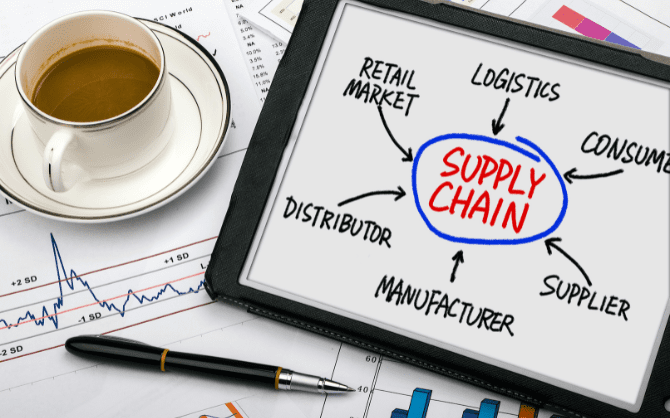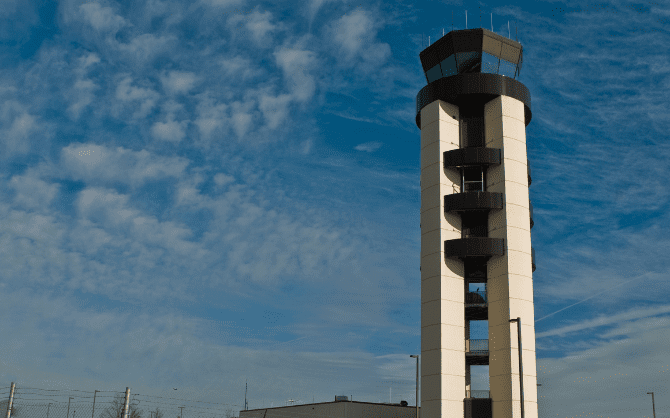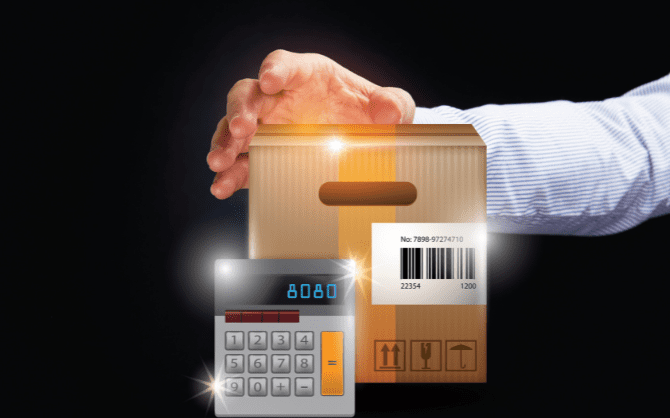
Are you looking for the best and most secure Transportation Management System in freight and logistics transportation? Don’t look any further, here is all the information you need to know about what is a TMS (Transportation Management System), its main features, and a real case study with the one we use at The ILS Company to manage our daily operations.
What is a TMS for?
We all know that transportation, manufacturing, and warehousing are the three pillars of the supply chain. These tasks are in most cases, complex processes that involve many parties within the company but also, external suppliers. How can you as a company, keep control of all these operations and their actors while trying to optimize resources and processes at the same time?

The supply chain involves multiple tasks and actors.
That’s where TMS comes in
Smaller shippers can use spreadsheets to keep track of their daily transportation services but you’ve guessed it, there are some limits on working this way. You may be a huge fan of Excel, but you will understand that as your business grows, you will need more robust software to coordinate all your shipment operations. That’s the goal of a TMS, to keep track and organize all the transportation mechanisms of your company. This implies getting access at a few fingertips to invoices, freight costs, and other financial information. A TMS should also provide supply chain actors, load planning, real-time tracking, and a series of cost-effective solutions to streamline operations.
Now that we know what a TMS is used for, let’s dive a little bit deeper into its definition.
What is a Transportation Management System (TMS)?
TMS stands for “Transportation Management System”, and in practical words, we are talking about a digital tool or software that businesses use to effectively manage their logistics and transportation tasks. Transportation Management Systems are beneficial for both, producers and distributors.
The most important feature of a TMS is the ability to bring control tower capabilities. Imagine you work in an airport traffic control tower and need to coordinate hundreds of flights every day; that wouldn’t be possible without the help of modern technology. A Transportation Management System plays exactly this role for carriers and transportation companies.

A Transportation Management System (TMS) plays the role of a control tower.
How does it work in real life? Nowadays, everything is connected via API (Application Programming Interface) or EDI (Enterprise Resource Planning). It doesn’t sound very seductor, does it? This only means that a TMS is a software solution that provides the possibility to connect to other companies’ software (financial or warehouse systems for instance). A transportation management software becomes then, the control tower that collects real-time data from producers to distribution centers, delivery, and clients, providing thus useful information to all of its users. An efficient TMS gives shippers visibility into both, their daily operations as well as the performance of their whole supply chain network.
Who are the TMS users?
Shippers and third-party logistics providers are the real users of the Transportation Management System. They use it on a daily basis to track and coordinate their supply chain. Many companies offer the same TMS platform for both groups, with a few exceptions regarding features, user access, and functionality.
To sum it up, TMS gives shippers and carriers better control and visibility over their shipments’ planning, execution, and tracking. They are able to monitor transportation spending, pick up times, detect growth opportunities and find competitive advantages.

Shippers and third-party logistics providers are the real users of Transportation Management Systems.
Which Transportation Management solution should you choose?
There are many options on the market when it comes to choosing the right Transportation Management System for your company. Big software companies such as Oracle or SAP offer their own logistics solutions.
Besides its tower control capabilities, when choosing a Transportation Management System (TMS) make sure they have the ability to connect to your company intern software. It’s possible to integrate your ERP (Enterprise Resource Planning), Transportation Services, and Warehouse Management Systems (WMS) to unify your supply chain ecosystem. A few of these functions may integrate with fleet management systems too.
Your TMS provider should offer robust capabilities for dealing with both, domestic and international freight if required by your operations. Dealing with different currencies is, for instance, a common problem TMS should be able to face. If you want a piece of advice, do some business intelligence on Google before finding your right partner. It is not an easy decision to find a good TMS provider. Take your time to figure out what are the best options, what can each company offer, and if they are able to provide a dedicated team that will help you onboard and deals with custom integrations. Don’t take your decision until you have the complete picture. If you have never seen a TMS from the inside, here is a quick snapshot of the one we use at The ILS Company:
Main Features a Transportation System must have
Starting with a transportation request, which includes freight spend and shipment specifications, TMS solutions should offer a series of multiple features for better control and organization over the whole supply chain. Carrier capacity and cargo distribution must be planned in advance by shippers through a TMS.
If you are at the point of choosing a TMS for your company, make sure the software you choose manages tasks across a load’s entire lifecycle, such as:
- Load planning (route optimization, modal conversions, carrier management)
- Executing a load (booking, tendering)
- Track Shipments (status updates)
- Transportation Spend (settlement, auditing, billing)
- Real-Time Data (KPI tracking, analytics)
Benefits of using TMS shippers for your supply chain
A TMS shipper is simply a transportation company that offers a TMS as part of its services. This allows customers to access shipment information real-time through a system that can be presented in the form of a web browser intranet or even an Android or iOS App for cellphone.
No matter how you access your data, here are the main benefits of choosing a company with a TMS:
1. Customer order management:
Planners, drivers, and customers should be able to access order details in a TMS. These tools make it easier for customers to keep track of the entire process such as:
- Order entry
- Order overview
- Freight spend
2. Tendering
95% of TMSs auto-tender shipments. You can access a carrier based on the parameters you specify or let the system choose one for you. Broadcasts, waterfall reports, and status tendering are the most common approaches for most TMS systems.
To give you an idea, TMS Shippers’ tendering methods include the following:
- Cost savings
- Auto-award
- Service levels allocations
- Selecting the best-performing carrier
3. Controlling shipping costs
A rate processor is an essential part of any TMS. A rate engine uses a set of rules, such as base rates, discounts, and contract agreements, to generate shipping rates for parcels, truckloads, and intermodal shipments. Ideally, a TMS can build bespoke pricing rules to fit even the most complex tariffs and instantly provide an estimate to a customer at the time of their request.

A TMS should help you find the best shipping costs.
Transportation Services FAQs:
What is a shipper TMS?
A shipper TMS is a company that offers Transportation Management Systems to access your transportation order. Different actors can plug into the software with different user access permissions (drivers, planners, carriers, customers, 3rd party actors).
How many shippers use a TMS?
Almost every shipper in the world depends on a TMS, which is why 98% of large shippers use one.
What are TMS providers?
Software companies that offer a robust platform to organize, execute, and optimize the physical movement of products for national or international shipments.
What is the TMS application?
A software that manages and optimizes inbound and/or outbound transportation operations from a smartphone (Android/iOS). A TMS is crucial to a task supply chain execution application package. Here is an example of the App we have at The ILS Company.


